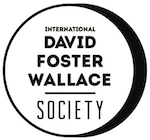
The great literary critic and scholar Steven Moore reached out to us this month to say that he had discovered an interview with David Foster Wallace in an obscure and forgotten journal/fanzine called Engender.
This is likely Wallace’s second “published” interview, albeit in a very limited venue. His first, more traditional interview, came as part of a profile for the release of The Broom of the System, published in the Wall Street Journal in 1987.
This interview takes place at the most vulnerable time in Wallace’s life. Engender was published in Tucson in January 1990. In the summer of 1989, Wallace decided to return to academia for good rather than pursue a career in writing. His application for the graduate philosophy program at Harvard is in some ways, a running away from a possible career as a “fictionalist.”
“I don’t want to be part of the literary world; I’m scared of it. Writing is a lot like sex; I love to do it, but you’ve got to be in the mood, you can’t do it for hours and hours, and I don’t want to fuck for a living,” he told the interviewer, Martin Schecter.
At this moment in time, he is not yet sober, but careening toward the breakdown that will give him the space and courage to write Infinite Jest. He describes himself here writing Girl with Curious Hair as a “confused and angry grad student with a drug problem who watched a lot of TV.”
This interview, almost 30 years old, is a reminder that, although the young Wallace almost immediately secured a major trade publication deal after starting grad school, his sophomore work situated him squarely in the experimental camp—relegated to interest from journals such as Engender, Whiskey Island journal, and SPEAK magazine. Not until Infinite Jest does he veer back toward mainstream recognition and Time magazine.
What’s striking here is how settled so many of his tastes and interests were even before he began working on Infinite Jest or his essays or what would become The Pale King. For someone who didn’t use computers regularly for another decade or more, Wallace was laser-focused on the potential psychic damage of constantly re-calibrating “how to be a human being in a world that constantly changes day to day.”
Almost no trace remains of Engender. It is the 1980s version of an online journal begun in earnest and then abandoned to the scrap heap of forgotten blogs. Much of the first Engender pamphlet (was there a second?) is devoted to the Arizona alum Wallace. However, the emergence of this interview inevitably leads scholars to wonder: is there more?
NOTE: This interview was transcribed by Andrea Laurencell Sheridan and we thank her deeply for her work. Any nonstandard punctuation or hyphenation is from the original. Some typos have been corrected for clarity. If you have more information about Engender or know of other unpublished interviews with David Foster Wallace, please contact us: [email protected] Thanks again to Steven Moore for sharing this with us and the world.
